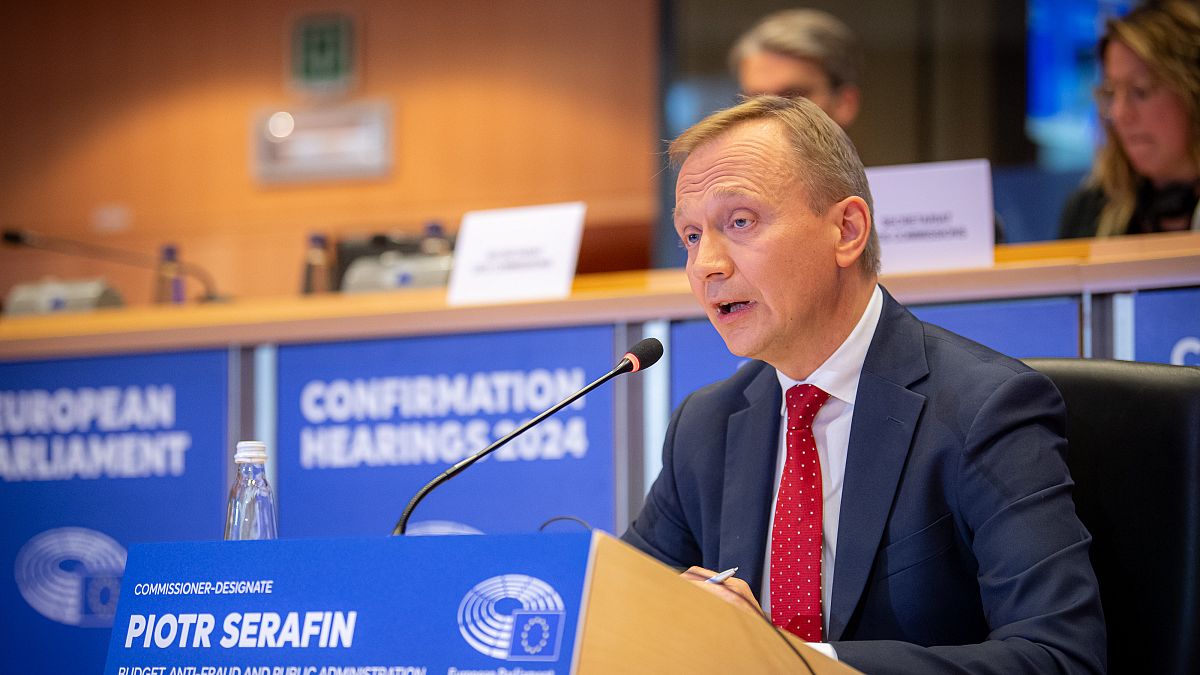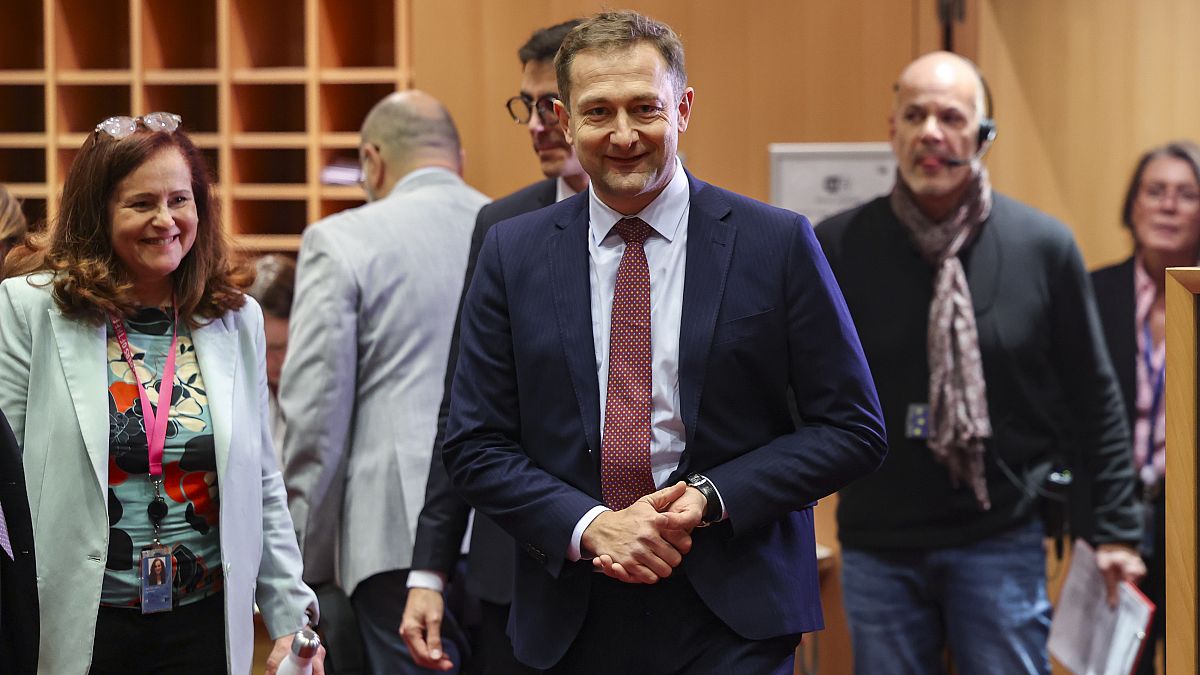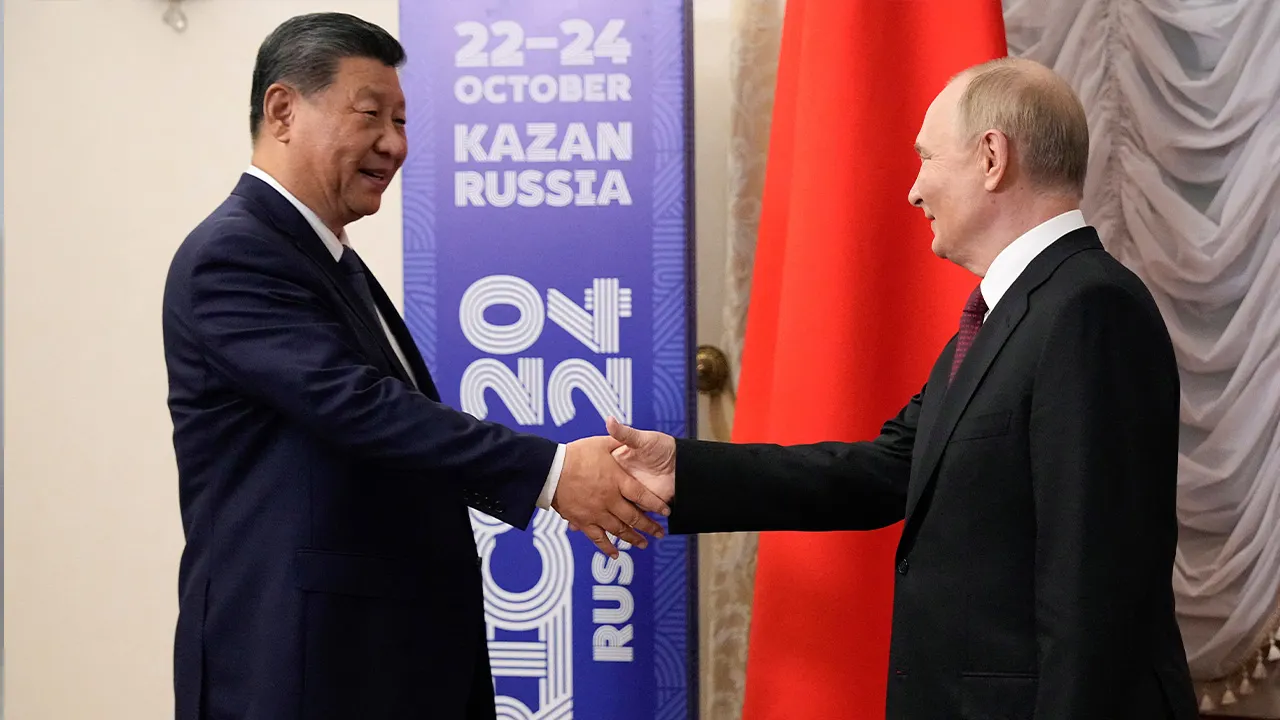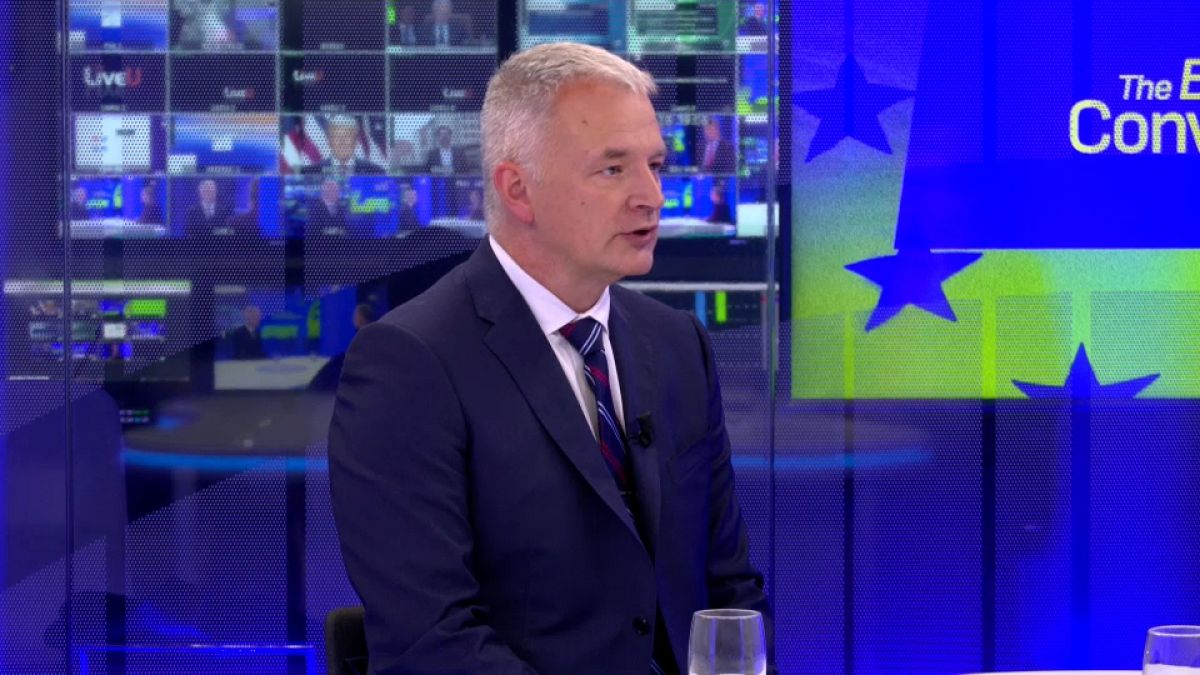World
Brussels pitches GDPR reform but without opening ‘Pandora’s box’

The European Commission has proposed to make surgical changes to the bloc’s landmark data privacy legislation.
Known as the General Data Protection Regulation (GDPR), the law redefined what privacy means in the 21st century and gave Europeans the right to decide who has access to their personal data, demand corrections and file legal complaints.
It also enshrined in law the now-famous “right to be forgotten,” which citizens can invoke to permanently delete their data from a company’s register.
But five years after its entry into force, the legacy of the GDPR is far from immaculate.
Government bodies, the private sector, privacy advocates and civil society organisations have all raised concerns about how the legislation is being enforced, including the hefty fees required to file a case, the divergent procedures among member states and the protracted waiting times for resolution.
Another long-running point of controversy is the relation between the data protection authorities (DPAs) of each member state.
“In five years we can count over 711 final decisions that have been taken by data protection authorities. This clearly shows that the GDPR is well enforced. But we can do better,” Didier Reynders, the European Commissioner for Justice, said on Tuesday.
Under the GDPR, enforcement falls on the authority of the country in which the company has set up its European headquarters. The vast majority of GDPR cases have a nationwide dimension and involve only one single DPA.
However, in certain instances, the infringement has a cross-border nature and several authorities are called to weigh in. This collaboration has often proven fraught and convoluted, leading to delays and litigation to the detriment of plaintiffs.
Special attention has been paid to the Irish DPA, which has to deal with the most high-profile cases given the abundance of Big Tech companies present in Ireland.
Earlier this year, a disagreement between the Irish DPA and other national authorities forced the intervention of the European Data Protection Board (EDPB) in a case against Meta, which resulted in a record-breaking fine worth €1.2 billion.
In a bid to address these persistent tensions, the European Commission has put forward a regulation that introduces a targeted reform of the GDPR’s rules of procedure, with a focus on cross-border lawsuits.
The proposed obligations will compel the leading DPA to bring on board the authorities from other concerned countries in the early stages of the process so as to collectively discuss the substance of the case, including its legal scope, the potential breaches, the collection of evidence and the technological assessment.
This communication line, the Commission says, will facilitate consensus and help address disputes before they spiral out of control. The new rules will harmonise the requirements for the admissibility of cross-border cases and guarantee citizens are equally treated in all member states, regardless of their nationality.
In other words, work closer to work better.
“What we try to do here is to have better enforcement of the GDPR through common rules in cross-border cases, to harmonise the different rules at a national level and to ensure that it’s possible to react earlier than now because now, sometimes, it (takes) very long to organise the process till the final decision,” Reynders said.
The Commissioner refuted calls for a full-blown revision of the law, arguing the time was not ripe to have such a conversation between the EU co-legislators, and defended the principle of the country of origin, which allows citizens to directly reach out to the DPAs in their native language.
The GDPR is a “very young child,” Reynders said. “It’s been five years and we need to continue to see how it’s possible to enforce better and better the GDPR.”
“For the moment we don’t want to reopen Pandora’s box,” he added.
But it might be a matter of time until Brussels realises that the GDPR requires a centralised entity on top of the national DPAs to effectively hold Big Tech accountable, says Alexandre de Streel, the director of the digital research programme at the Centre on Regulation in Europe (CERRE).
“This reform is a step in the right direction, but it will probably not be enough,” de Streel told Euronews in an interview. “For Big Tech – those firms that are present globally – you need to have a European regulator. It cannot just be only the country of origin doing the task for all Europeans.”
The failures of GDPR enforcement, de Streel said, had an obvious influence on the regulation that came after 2018, such as the Digital Services Act (DSA) and the Digital Markets Act (DMA), both of which bestow upon the European Commission the ultimate role of supervisor.
The emergence of AI-powered chatbots, which are trained with vast troves of data to self-learn new tasks, further reinforces the need for a comprehensive overhaul, the academic added.
“The country-of-origin principle was created for small companies that wanted to upscale in the international market, not for companies that have already scaled up, This is the big misunderstanding,” de Streel said, referring to giants like Meta, Apple, Amazon, Google and TikTok, whose market value vastly exceeds Ireland’s GDP.
“You cannot rely on Ireland to be the judge of all Europe.”

World
Sarah Palin, NY Times Have Explored Settlement, as Judge Sets Defamation Retrial
World
UN, Israel at odds over cause of decline in aid deliveries: 'False narratives by international community'
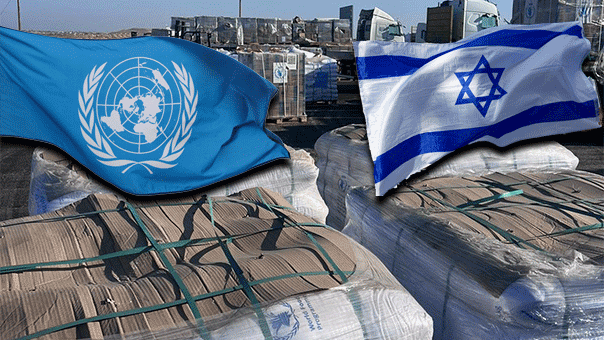
Aid entering Gaza declined during the month of October, particularly in the northern Gaza Strip where a military offensive against Hamas is underway. The United Nations and Israel are increasingly blaming one another over the reasons for and extent of the problem.
Stéphane Dujarric, spokesperson for U.N. Secretary-General António Guterres, stated on Oct. 27 that “repeated efforts to deliver humanitarian supplies” were being “denied by the Israeli authorities.”
Brig. Gen. Elad Goren, head of the Coordination of Government Activities in the Territories (COGAT) that oversees the humanitarian-civil effort in Gaza, told Fox News Digital that the accusation is “100 percent pure, complete lie.” Goren said that “there will be a time that people will write books about what has happened during this war. Not just in the battlefield, but also the fight over narratives, the false narratives by the international community.”
Goren emphasized the lack of “logistical capacity, lack of trucks, lack of manpower, lack of resources,” and overall lack of commitment in the U.N. effort. “If this is the most important humanitarian logistical operation,” Goren asked why the U.N. only brought 69 personnel and 40 trucks to distribute aid. “We feel that the U.N. does not want to be excellent in their job, because they believe that if they do their job, it will ease pressure on Israel,” Goren said.
BIDEN ADMIN ISSUES WARNING TO NETANYAHU AS ISRAEL HOLDS EMERGENCY MEETING ON GAZA AID
Israel opened up the Kisufim on Tuesday for the transfer of humanitarian aid trucks. The aid includes the delivery of food, water, medical supplies and shelter equipment to central and southern Gaza.
Seeming to reinforce Goren’s observation is data from COGAT showing that the number of aid trucks awaiting collection at the Kerem Shalom crossing rose from 450 on Oct. 1 to 700 on Oct. 30. COGAT shared exclusive footage of the overstocked Kerem Shalom loading area with Fox News Digital.
Goren said that COGAT “sat down with the U.N. several times in order to find solutions” to issues impeding aid deliveries, like looters continuing to attack humanitarian convoys. According to Goren, COGAT offered “alternative roads in order to bypass” looters, proposed “allowing the Palestinian trucks to move on defense roads from the Israeli side of the security fence,” and escorted trucks along their routes.
Dujarric refuted COGAT’s claims of offering alternative routes for trucks. He said that with pre-approved supplies only able to transit through three border crossings – Kerem Shalom, Gate 96 and Erez West – as of November, “our humanitarian colleagues…access these border areas by highly dangerous routes, exposed to hostilities, with many alternative roads being banned by the Israeli authorities. The routes available are often in poor condition and prone to armed looting resulting,” Dujarric continued. “Commercial supplies are virtually banned.”
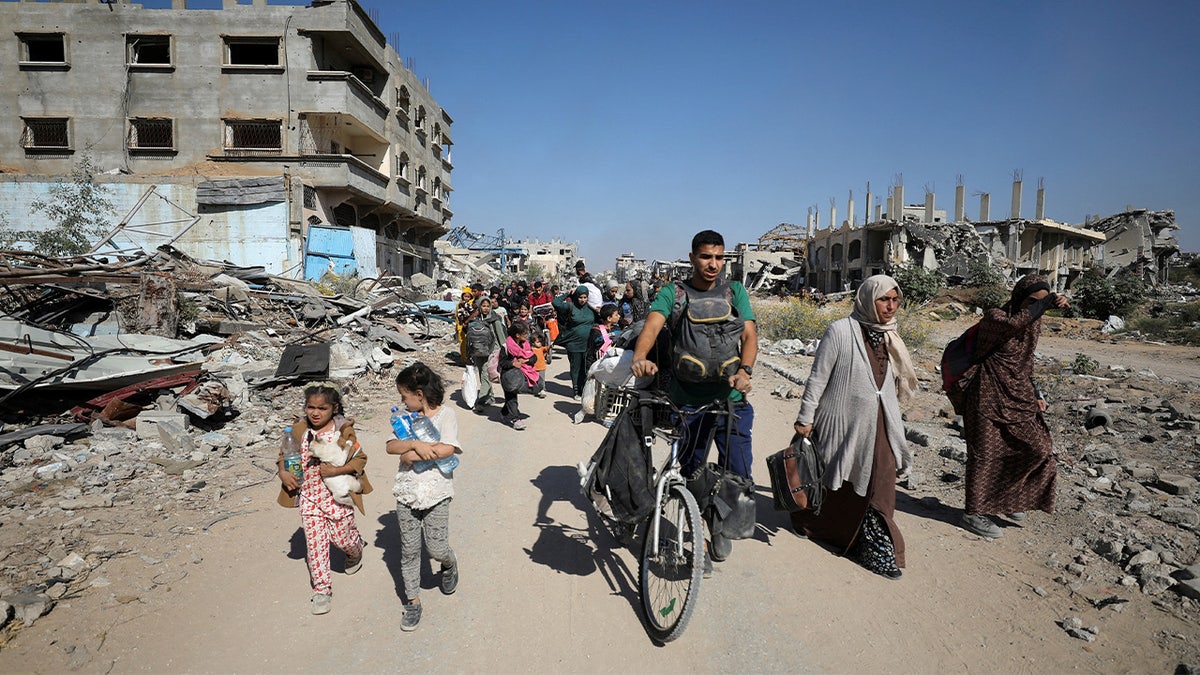
Displaced Palestinians ordered by the Israeli military to evacuate the northern part of Gaza flee amid an Israeli military operation in Jabalia in the northern Gaza Strip on Oct. 22, 2024. (REUTERS/Dawoud Abu Alkas)
In response to questions about aid backing up at Kerem Shalom, Dujarric said that “letting supplies be placed at barely accessible entry points cannot be considered as facilitating humanitarian efforts.” Only when “supplies and services have reached the people who need them, in sufficient quantities” are they considered facilitated, Dujarric added.
According to Dujarric, “there are 80 international staff, 13,000 national staff employed with UNRWA, and 208 national staff employed by other U.N. agencies,” who are “working in the most dangerous conditions to provide life-saving assistance for the over two million people of Gaza.” He said that “to accuse them, and their national colleagues, of lacking motivation is insulting to say the very least.”
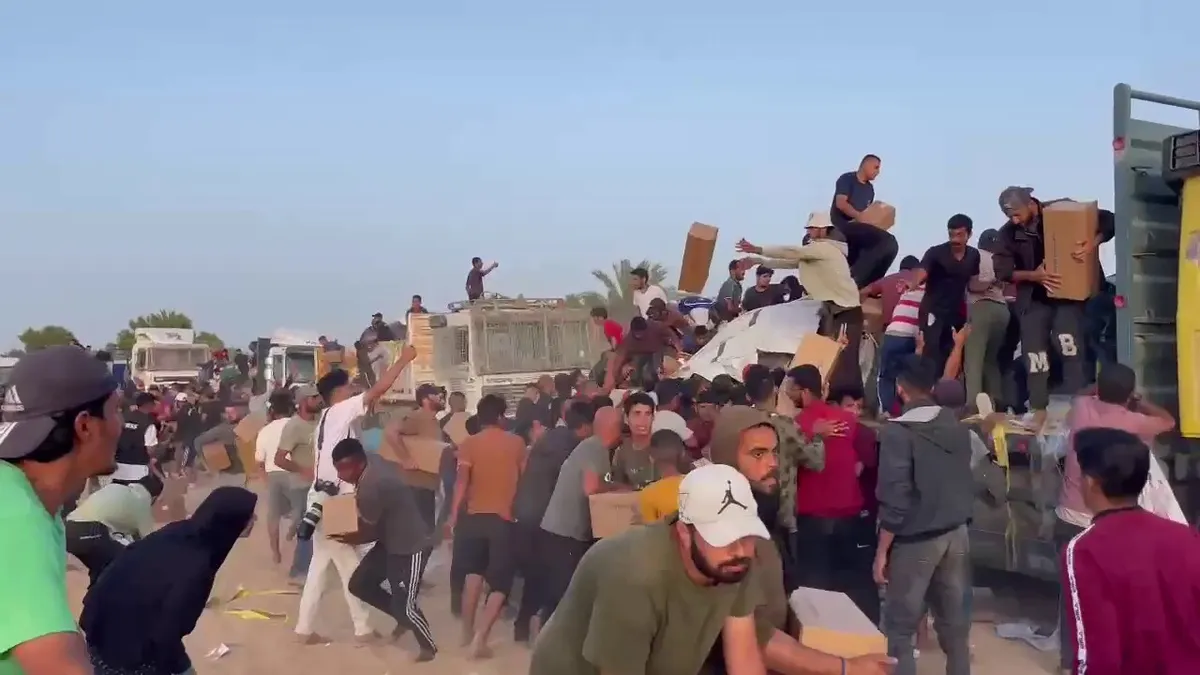
Looters take aid from trucks loaded with aid. (Majdi Fathi/TPS-IL)
Dujarric also noted additional concerns, including humanitarian workers being “held at Israeli checkpoints for hours, shot at, harassed and put in danger,” with one World Food Programme convoy “struck 10 times by IDF gunfire.” Dujarric said that only 35 of the 351 truck drivers WFP has submitted for clearance to COGAT were cleared.
ISRAELI PRIME MINISTER BENJAMIN NETANYAHU FIRES DEFENSE MINISTER YOAV GALLANT
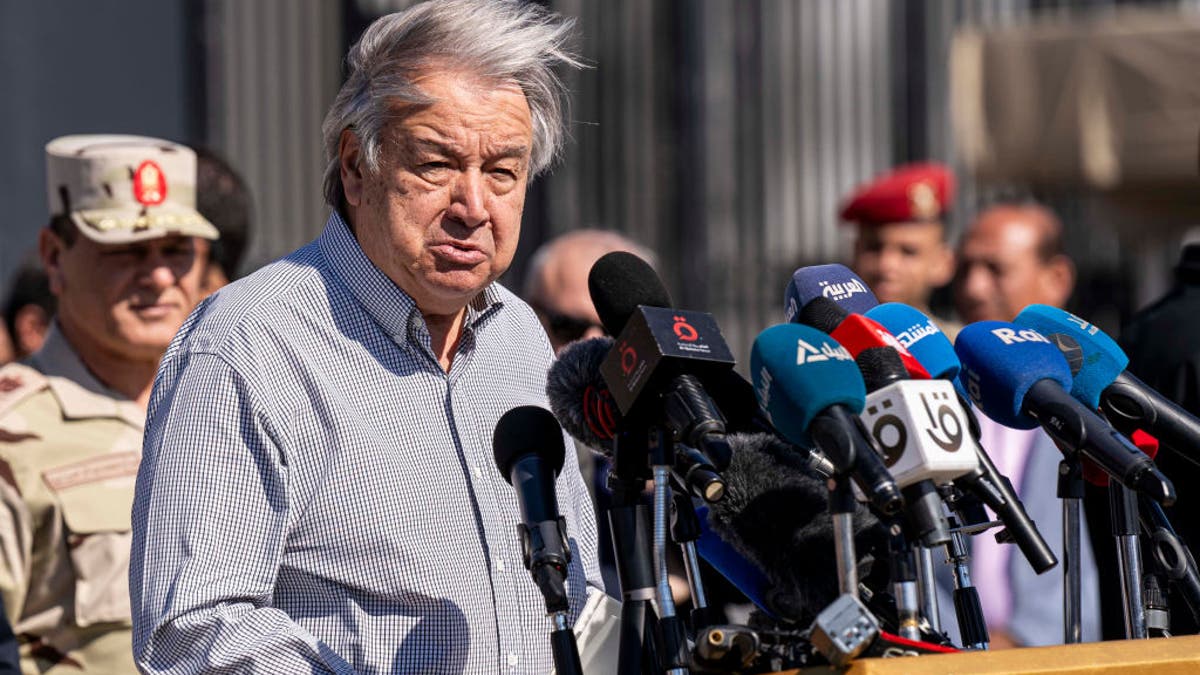
United Nations Secretary-General António Guterres speaks during a press conference in front of the Rafah border crossing on March 23, 2024 in Rafah, Egypt. (Photo by Ali Moustafa/Getty Images)
An Israel Defense Forces (IDF) spokesperson responded to Dujarric’s claims by telling Fox News Digital that the IDF “takes all operationally feasible measures to mitigate harm to civilians, including aid convoys and workers,” and “has never, and will never, deliberately target aid convoys and workers.” The spokesperson also explained that the IDF is “working proactively with international aid organizations to update driver lists, subject to strict security checks due to the drivers’ proximity to the Israeli border,” and wants to “expedite driver approvals.”
The IDF directly refuted Dujarric’s assertions about Kerem Shalom, saying that Israel “has taken proactive steps to improve accessibility at the crossings,” including carrying out road expansions, adding “dozens of empty trucks, forklifts, and additional logistical equipment,” and allowing “daily tactical pauses to enable and ease the transfer of aid.”
The IDF spokesperson said that Israel has been sending “humanitarian aid, blood supplies, food boxes, fuel, and medical equipment” and medical teams into northern Gaza through Erez and two additional locations. Israeli officials did announce last week that they will soon add a new humanitarian aid crossing in Kissufim in order to facilitate more deliveries to the southern portion of the Gaza Strip.

Israeli soldiers stand at the entrance to a tunnel leading to Egypt amid the ongoing conflict between Israel and the Palestinian Islamist group Hamas in the Gaza Strip in the Philadelphi Corridor area in southern Gaza on Sept. 13, 2024. (REUTERS/Amir Cohen)
On Nov. 1, Reuters alleged that the situation in northern Gaza was “apocalyptic,” with all Gazans “at imminent risk of dying from disease, famine and violence.” On Nov. 8, the Integrated Food Security Phase Classification (IPC) Famine Review Committee issued a similar warning, explaining that there was “a strong likelihood that famine is imminent” in parts of northern Gaza.
David Adesnik, a senior fellow and director of research at the Foundation for Defense of Democracies, has tracked dire warnings of famine in Gaza during the conflict there. He talked with Fox News Digital about prior predictions of doom which did not come to pass, largely because of COGAT’s efforts to allay hunger.
Adesnik explained that the IPC has “downplayed the good news aggressively” of the “long term trend” of lowering the number of Gazans in the worst phases of hunger. The IPC found in December 2023 that 17% of Gazans faced catastrophic phase-five hunger conditions. By March, 30% of the population had reached phase five, with onlookers predicting famine was imminent. The next report, however, found that just 15% of Gazans were in phase five. The most recent IPC snapshot from October shows that just 6% of Gazans are in phase five, though the IPC warns that this number is “expected to nearly triple in the coming months”. The IPC proclaimed that the “risk of famine persists.”

Palestinian terrorists of the al-Qassam Brigades, the armed wing of the Hamas movement, take part in a military parade to mark the anniversary of the 2014 war with Israel, near the border in the central Gaza Strip on July 19, 2023. (MAHMUD HAMS/AFP via Getty Images)
With a new U.N. FAO-WFP report that likewise raises alarms about possible famine, Adesnik said that “the U.N. is doing its best to obscure the improvements in food security made possible by a surge of aid into Gaza this past spring and summer.” He added that the report fails to mention how, according to U.N. data, there was an 80% decline in “the number of Gaza residents facing the most severe deprivation” between March and October.
ISRAELI FORCES SEIZE DOCUMENTS THAT REVEAL HAMAS PLAN FOR MORE ELABORATE ATTACKS: REPORT
Professor Aron Troen, of the Faculty of Agriculture, Food and Environment at Hebrew University in Jerusalem, performed an analysis of the quantity of calories reaching Gazan civilians through humanitarian aid efforts. In May, Troen’s report found that the “quantity and nutritional composition of the food that has been delivered over the past four months complied, and even exceeded” an “internationally-recognized benchmark for humanitarian response.”
Troen told Fox News Digital that his team recently updated its figures and found that aid entering Gaza was “enough up until September.” Troen added that COGAT is “doing a heroic job in very tough times” but that “there really is immense suffering in Gaza.”
COGAT’s online portal shows that since the war began in October, more than 1,115,000 tons of aid have entered Gaza.
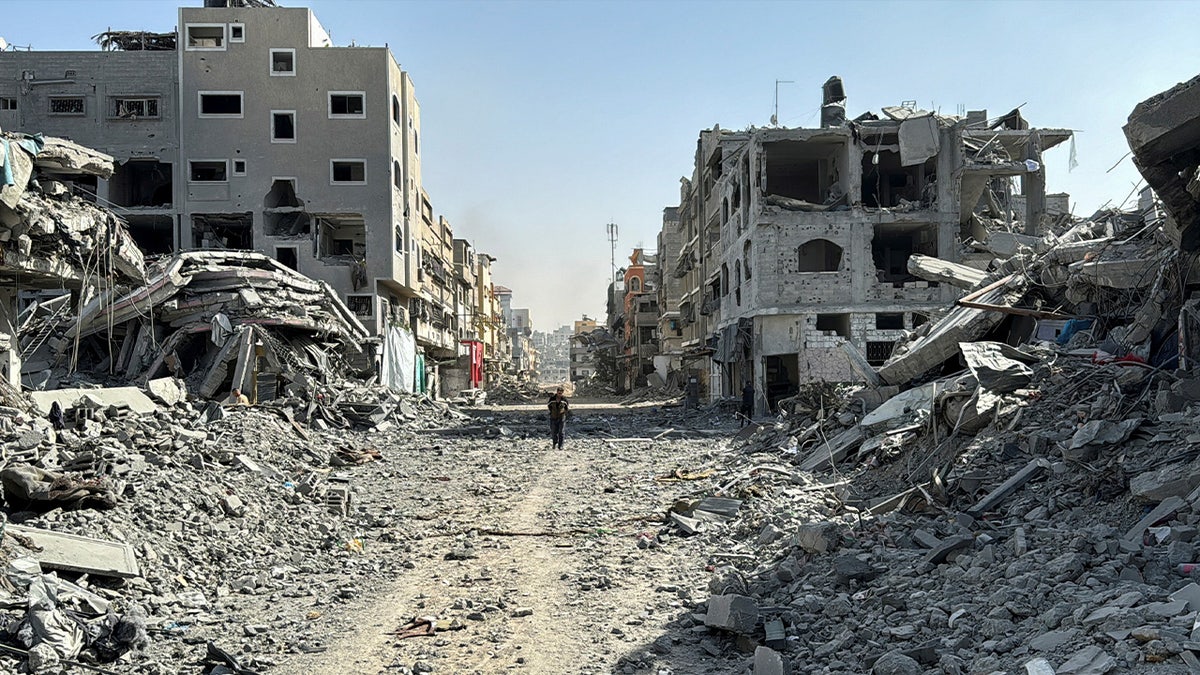
A man walks past the rubble after Israeli forces withdrew from the area around Kamal Adwan hospital, amid the ongoing Israel-Hamas conflict in Jabalia in the northern Gaza Strip on Oct. 26, 2024. (REUTERS/Stringer)
Goren admitted that aid quantities were low in October due to the High Holidays, memorials for the Oct. 7 anniversary, and the closing of the two Erez aid crossings for two weeks while troops moved into northern Gaza to battle “the heart of Hamas.” While many in the media supposed that the so-called “General’s plan” to evacuate northern Gaza and cut off aid was the culprit for diminished aid, Goren said that General’s plan has never “even been discussed in the army.” He also emphasized that “we are not in a war against civilians, but against Hamas.”
As a part of that war, COGAT ended private sector aid during the month of October. Goren said that Hamas was “trying to take advantage and use the private sector” as a way to collect taxes and steal aid. “So we closed it,” he explained. “There is no way that we will allow Hamas to empower itself from humanitarian assistance.”
TRUMP NAMES STEFANIK UN AMBASSADOR
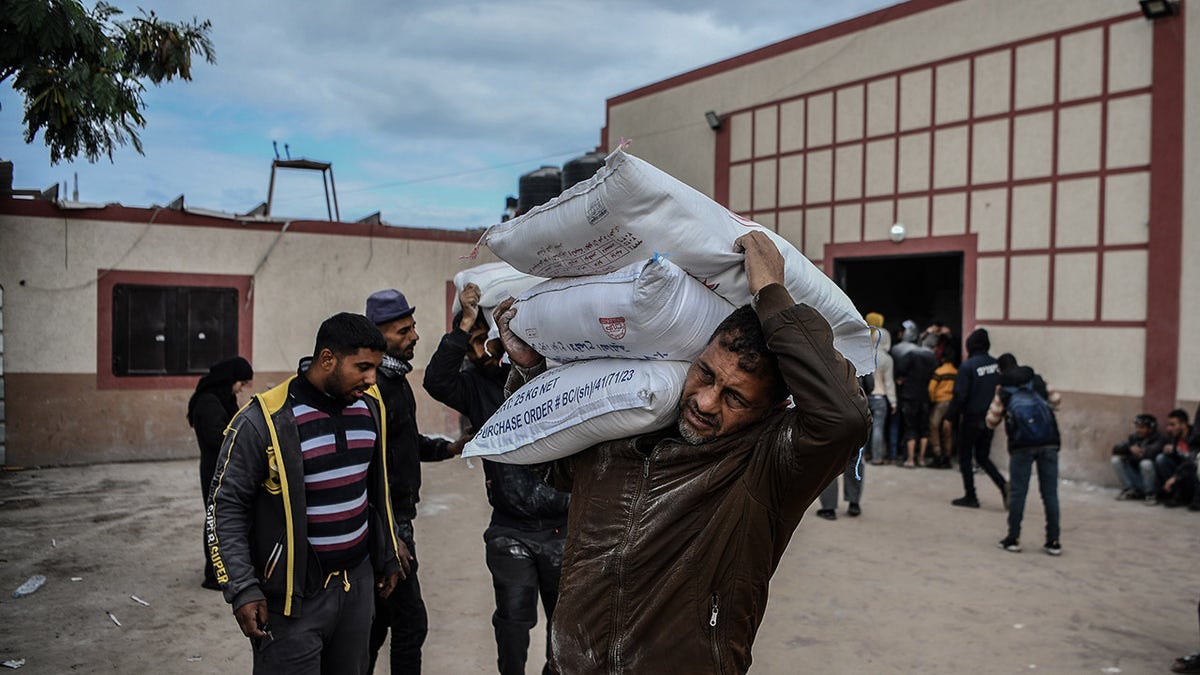
Palestinians, who left their homes and took refuge in Rafah city under hard conditions, carry the flour they received in the area where the United Nations Relief and Works Agency for Palestine Refugees distributes flour to families as Israeli attacks continue in Rafah of Gaza on Jan. 28, 2024. (Abed Zagout/Anadolu via Getty Images)
Secretary of State Antony Blinken stated on Oct. 16, 2023 that “if Hamas in any way blocks humanitarian assistance from reaching civilians, including by seizing the aid itself, we’ll be the first to condemn it, and we will work to prevent it from happening again.” President Biden emphasized two days later that “if Hamas diverts or steals the assistance, they will have demonstrated once again that they have no concern for the welfare of the Palestinian people and it will end.”
Fox News Digital asked the State Department whether Blinken would condemn Hamas’ aid theft and aid taxation, but received no response.
Adesnik told Fox News Digital that “from early on, at least last November or December, the administration has ramped up criticism of Israel, but with a couple of exceptions, continues to provide the weapons that Israel needs.” As Adesnik explained, “neither side thinks the U.S. is pursuing a principled middle ground.”
American officials’ frustration with Israel peaked last month, evidenced by a leaked letter from Secretary of State Antony Blinken and Secretary of Defense Lloyd Austin to Israeli officials on Oct. 13. In it, U.S. officials warned that they will need to reassess whether to allocate foreign military funds to Israel. They provided a list of improvements they expect to see before Nov. 13. This included enabling the delivery of 350 truckloads of aid each day, a benchmark not yet achieved.
On Tuesday, State Department spokesman Vedant Patel noted that Israel was currently not “in violation of U.S. law,” adding that, “We are watching these circumstances closely and we will, make appropriate changes, within our own policy, should we need to if we assess that their compliance with US law has changed.”
Following the State Department’s announcement, Israel’s Ambassador to the United Nations, Danny Danon, told Fox News Digital that he welcomed the news, noting that “We worked very hard in order to assist humanitarian needs in Gaza.” Danon said the environment in Gaza is challenging given how Hamas terrorists operate which includes hijacking aid trucks, he said.
World
Russia-Ukraine war: List of key events, day 992

As the war enters its 992nd day, these are the main developments.
Here is the situation on Wednesday, November 13:
Fighting
- Ukraine shot down 46 of 110 Russian drones launched overnight, the Ukrainian Air Force said. An additional 60 Russian drones were lost in Ukrainian airspace and two travelled towards Belarus. Russian forces also launched three missiles during the overnight attack, in addition to guided aerial bombs, the Air Force said.
- Russian air defence systems destroyed 13 Ukrainian drones overnight in regions bordering Ukraine, Russia’s Ministry of Defence said.
- North Korean troops have begun engaging in combat alongside Russian forces, the United States State Department said. Spokesperson Vedant Patel said that more than “10,000 DPRK [North Korean] soldiers have been sent to eastern Russia”, the vast majority to the Kursk region, where they have “begun engaging in combat operations with Russian forces”.
International affairs
- Russia’s growing economic and military cooperation with China, North Korea and Iran “is not only threatening Europe”, it is also “threatening peace and security” in the Asia Pacific and North America, according to NATO Secretary-General Mark Rutte.
- Russian Security Council Secretary Sergei Shoigu has told China’s Minister of Foreign Affairs Wang Yi in Beijing that strong relations between Moscow and Beijing are a stabilising influence on the world.
- US Secretary of State Antony Blinken travelled to Brussels to discuss support for Ukraine in meetings with NATO and European Union counterparts, the State Department said.
- Ukraine is close to setting up three new joint ventures with European weapons producers to boost arms output, according to Ukraine’s First Deputy Prime Minister and Minister of Economy Yulia Svyrydenko. She said five joint ventures had already been set up with Western weapons producers, including German and Lithuanian companies.
- China needs to feel a “higher cost” for its support for Russia, which enables Moscow to pursue its war in Ukraine, Estonia’s ex-Prime Minister Kaja Kallas said at her confirmation hearing at the European Parliament to become the EU’s next foreign policy chief.
- The deputy chief of Russia’s Security Council and former Russian President Dmitry Medvedev accused European leaders of seeking to dangerously escalate the Ukraine conflict and push it “into an irreversible phase”, following the re-election of former US President Donald Trump.
- Massachusetts Air National Guard member Jack Teixeira was sentenced to 15 years in prison for leaking highly classified US military documents to a group of gamers on the Discord messaging app. The leaks included information concerning the use of US equipment in Ukraine following Russia’s 2022 invasion.
Russian affairs
- Russia’s estimates for this year’s grain harvest, as well as for the winter grain seeded area, will include data from Ukrainian territories under Moscow’s control, Russia’s Ministry of Agriculture said. Following months of bad weather, the ministry forecasts this year’s grain harvest at 130 million tonnes – a 12 percent decrease from 2023’s 148 million tonnes and an 18 percent reduction from the record 158 million tonnes in 2022.
- The city of Helsinki will initiate a forced takeover of the Finnish capital’s biggest sport and events stadium, the Helsinki Arena, from its sanctions-hit Russian owners, the city’s executive governing board said.
- A Russian Navy frigate equipped with new-generation hypersonic cruise missiles conducted drills in the English Channel and is carrying out tasks in the Atlantic Ocean, Russian media reported.
- Russia’s lower house of parliament unanimously voted to ban “propaganda” promoting a child-free way of life, as it hopes to boost the faltering birthrate while death rates are up due to Moscow’s war in Ukraine.
- A Russian court sentenced a Moscow paediatrician to five and a half years in a penal colony after the mother of one of her patients publicly denounced her over negative comments she allegedly made about Russia’s war in Ukraine.
-

 Culture1 week ago
Culture1 week agoYankees’ Gerrit Cole opts out of contract, per source: How New York could prevent him from testing free agency
-

 Culture1 week ago
Culture1 week agoTry This Quiz on Books That Were Made Into Great Space Movies
-

 Health5 days ago
Health5 days agoLose Weight Without the Gym? Try These Easy Lifestyle Hacks
-

 Culture5 days ago
Culture5 days agoThe NFL is heading to Germany – and the country has fallen for American football
-

 Business4 days ago
Business4 days agoRef needs glasses? Not anymore. Lasik company offers free procedures for referees
-
/cdn.vox-cdn.com/uploads/chorus_asset/file/25538361/247196_Echo_Spot_Review_8A0A1511_CVirginia.jpg)
/cdn.vox-cdn.com/uploads/chorus_asset/file/25538361/247196_Echo_Spot_Review_8A0A1511_CVirginia.jpg) Technology1 week ago
Technology1 week agoAmazon’s Echo Spot alarm clock is on sale with a free color smart bulb
-

 Sports4 days ago
Sports4 days agoAll-Free-Agent Team: Closers and corner outfielders aplenty, harder to fill up the middle
-

 News1 day ago
News1 day agoHerbert Smith Freehills to merge with US-based law firm Kramer Levin



